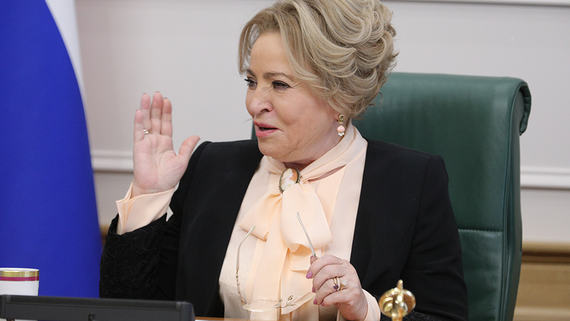Matvienko proposed introducing incentives to regions for high contributions to the state budget
[ad_1]

Regions that contribute the majority of their tax revenues to the federal budget should receive additional bonuses and preferences. With such a proposal spoke at parliamentary hearings on the draft federal budget for the next three years, Speaker of the Federation Council Valentina Matvienko.
“We have entities that transfer significant tax revenues to the federal budget, and significantly less remains in the regions. This is an objective situation <...> But at the same time, such a disproportion must be corrected. The regions are trying to earn as much tax revenue as possible, but for them, the more they earn, the more they withdraw. The motivation to work well disappears,” explained Matvienko (quoted by Interfax).
She cited as an example the situation that developed in the Irkutsk region. The region transfers 88% of its tax income to the federal budget and can use only 12% of the total amount for its own needs. The speaker noted that roads in the Irkutsk region need to be repaired. And now residents who pay taxes are rightly wondering why they don’t have quality roads, Matvienko added.
According to the speaker of the Federation Council, it is not worth changing the current rules for deduction of tax revenues for the regions, otherwise the entire structure may suffer. But for subjects like the Irkutsk region, incentive measures can be introduced. Matvienko called for finding a balance between the interests of the federal budget and the needs of the regions.
Acting Chairman of the Accounts Chamber Galina Izotova reported at parliamentary hearings about the risks of growing public debt in the regions. According to her data, by September 1, the figure reached 3.1 trillion rubles, and in the future it may increase. Izotova proposed expanding the options for using uniform subsidies. So far, this mechanism is used only within the framework of the state program “Implementation of state national policy.”
[ad_2]
Source link








